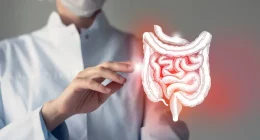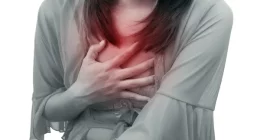MICE Therapy Improves Mental Health in Children with Epilepsy – The study on the new psychological treatment for epileptic children, known as M.I.C.E (Mental Health Intervention for Children with Epilepsy), aims to address the prevalence of mental health disorders like anxiety, depression, and disruptive behavior disorders in young individuals with epilepsy.
Despite epilepsy being defined by recurrent seizures, comorbid mental health disorders such as anxiety and depression often have a more significant impact on quality of life.
The research program, including a randomized controlled trial (RCT) as Work Package 3, focuses on developing a new psychological treatment for depression and behavioral problems in children with epilepsy.
Children and young people with epilepsy are at a higher risk of developing mental health difficulties, with up to 60% experiencing associated mental health disorders.
The new treatment, MICE, has shown promising results in reducing mental health difficulties compared to standard care, offering a modular approach to treating multiple mental health conditions simultaneously.
The primary outcome measured in the trial is the Strengths and Difficulties Questionnaire (SDQ) reported by parents at 6 months post-randomization, with secondary outcomes including measures like the Revised Children’s Anxiety and Depression Scale.
This innovative approach integrates psychological treatments into epilepsy care to improve emotional well-being and overall quality of life for children with epilepsy. The study’s findings highlight the importance of addressing mental health needs in this population and offer hope for more effective and integrated care for young individuals with epilepsy experiencing mental health challenges.
Prevalence of Mental Health Problems in Children with Epilepsy
Children and adolescents with epilepsy face a significantly elevated risk of developing mental health disorders, with up to 60% of individuals with epilepsy experiencing associated mental health conditions.
The individual prevalence rates of common comorbidities in this population include depression (11-60%), anxiety (19-45%), psychosis (2-8%), and ADHD (25-30%).
These mental health challenges can have a substantial impact on the quality of life and overall well-being of young individuals with epilepsy.
Challenges in Treating Mental Health Issues in this Population
Despite the high prevalence of mental health disorders in children with epilepsy, there are significant challenges in identifying and managing these conditions effectively. Research indicates that mental health disorders often go undetected and untreated in clinical practice, leading to inadequate support for affected individuals.
The lack of consistency and adequacy in treatment for mental health difficulties highlights the need for more comprehensive and integrated approaches to care for children and young people with epilepsy.
Current service organization often fails to integrate physical and mental health care effectively, resulting in suboptimal management of mental health issues in children with epilepsy.
The referral process from pediatric services to Child and Adolescent Mental Health Services (CAMHS) may contribute to delays in diagnosis and treatment, further underscoring the need for improved coordination and integration of care for this vulnerable population.
Addressing these challenges requires a systematic and integrated approach to identifying, assessing, and treating mental health issues in children with epilepsy. The development of innovative treatments like the Mental Health Intervention for Children with Epilepsy (MICE) offers a promising step towards providing more effective and tailored care for young individuals facing both epilepsy and mental health difficulties.
Participant Selection and Screening Process
In total, 334 participants aged 3–18 years attending epilepsy services were screened for mental health disorders as part of the trial. Those identified as having a mental health disorder and consenting to the trial were then randomized to either receive up to 22 sessions of the MATCH-ADTC treatment or assessment-enhanced usual care. Outcomes were measured at baseline, 6 months, and 12 months post-randomization, with the primary outcome being the Strengths and Difficulties Questionnaire (SDQ) reported by parents at 6 months.
Intervention Details: MATCH-ADTC Treatment
The new psychological treatment, known as MATCH-ADTC (Mental Health Intervention for Children with Epilepsy), was designed to address common childhood mental health disorders like anxiety, depression, and disruptive behavior disorders in children with epilepsy. This innovative treatment approach offers a modular approach to treating multiple mental health conditions simultaneously, aiming to improve emotional well-being and overall quality of life for young individuals with epilepsy.
The intervention was tailored specifically for children and young people with epilepsy, incorporating evidence-based psychological treatments recommended by the National Institute for Health and Care Excellence (NICE).
Primary Outcome: Strengths and Difficulties Questionnaire (SDQ)
The primary outcome of the multicenter, randomized controlled clinical trial was the Strengths and Difficulties Questionnaire (SDQ) reported by parents at 6 months post-randomization. This measure aimed to assess the impact of the Mental Health Intervention for Children with Epilepsy (MICE) on the emotional well-being and mental health of children with epilepsy.
The results indicated that children who received the MICE treatment showed fewer mental difficulties compared to those who received standard care, with a significant decrease in the likelihood of having a psychiatric disorder.
Secondary Outcomes: Revised Children’s Anxiety and Depression Scale
In addition to the primary outcome, secondary outcomes included parent-reported mental health measures such as the Revised Children’s Anxiety and Depression Scale. These measures provided further insights into the effectiveness of the MATCH-ADTC treatment in addressing specific mental health issues like anxiety and depression in children with epilepsy.
Impact of the Treatment on Mental Health Problems in Epileptic Children
The study findings demonstrated that the new psychological treatment, MICE, developed for children with epilepsy, significantly reduced mental health difficulties compared to standard care. The modular approach of the intervention, which allowed for simultaneous treatment of multiple mental health conditions, led to improved emotional well-being and overall quality of life for young individuals with epilepsy.
These results highlight the potential of integrated psychological treatments in addressing mental health challenges in children with epilepsy and offer a promising avenue for more effective and holistic care for this vulnerable population.
Implications of the Study Findings
The study on the clinical effectiveness of the Mental Health Intervention for Children with Epilepsy (MICE) has significant implications for the treatment of mental health problems in children with epilepsy. The findings suggest that integrating psychological treatments into epilepsy care, as demonstrated by the MICE treatment, can lead to a reduction in mental health difficulties and an improvement in emotional well-being for young individuals with epilepsy.
By addressing common childhood mental health disorders like anxiety, depression, and disruptive behavior disorders in a comprehensive and integrated manner, this approach offers a promising avenue for enhancing the quality of life of children and adolescents with epilepsy.
Integration of Psychological Treatments into Epilepsy Care
The successful implementation of the MATCH-ADTC treatment within existing epilepsy services represents a crucial step towards integrating mental health care into epilepsy management. Unlike traditional approaches that involve referrals to specialized mental health services, the new treatment was delivered within epilepsy services by non-mental health specialists, ensuring a more holistic and coordinated approach to care.
This integration not only streamlines the delivery of mental health interventions but also enhances accessibility and continuity of care for children and young people with epilepsy facing mental health challenges.
Future Directions for Research and Clinical Practice
The positive outcomes observed in the study underscore the importance of further research and implementation of integrated psychological treatments for children with epilepsy. Future research efforts could focus on expanding the reach of such interventions, optimizing treatment protocols, and evaluating long-term outcomes to ensure sustained benefits for this vulnerable population.
Additionally, there is a need for continued collaboration between researchers, healthcare professionals, and patients to refine and tailor interventions like MICE to meet the evolving needs of children and adolescents with epilepsy experiencing mental health difficulties.
This collaborative approach can pave the way for more effective and patient-centered care in the management of mental health issues in children with epilepsy.
Summary of Key Findings
The study on the Mental Health Intervention for Children with Epilepsy (MICE) revealed significant findings regarding the treatment of mental health problems in children with epilepsy. The primary outcome, as measured by the Strengths and Difficulties Questionnaire (SDQ) reported by parents at 6 months post-randomization, showed that children who received the MICE treatment exhibited fewer mental difficulties compared to those receiving standard care, with a notable decrease in the likelihood of having a psychiatric disorder.
Secondary outcomes, including measures like the Revised Children’s Anxiety and Depression Scale, further supported the effectiveness of the MATCH-ADTC treatment in addressing specific mental health issues in this population.
Significance of the New Psychological Treatment for Epileptic Children
The development and implementation of the MICE treatment represent a significant advancement in addressing mental health challenges in children with epilepsy. By integrating evidence-based psychological treatments tailored for common childhood mental health disorders into epilepsy care, this approach offers a holistic and effective way to improve emotional well-being and quality of life for young individuals with epilepsy.
The modular nature of the intervention, allowing for simultaneous treatment of multiple mental health conditions, holds promise for enhancing patient outcomes and streamlining care delivery within existing epilepsy services.
References
- Mc Dermott, Mani S, Krishnaswami S. A population-based analysis of specific behavior problems associated with childhood seizures. J Epilepsy 1995;8:110-118.
- Davies S, Heyman I, Goodman R. A population survey of mental health problems in children with epilepsy. Dev Med Child Neurol 2003;45:292-295.
- Maia Filho HS, Costa CRM, Gomes MM. Epilepsia e Saúde Mental na Infância. J Epilep Clin Neurophysiol 2006;12:79-88.
- Hedderick E, Buchhalter JR. Comorbidity of child-onset epilepsy and psychiatric and behavioral disorders: a population based study. Ann Neurol 2003;54:115.
Ettinger AB, Weisbrot DM, Nolan EE, et al. Symptoms of depression and anxiety in pediatric epilepsy patients. Epilepsia 1998;39:595-5999.
These references provide further insights into the prevalence of mental health issues in children with epilepsy and the importance of integrated psychological treatments in improving their well-being and quality of life.
ALSO READ: 10 Best Exercises to Maintain Weight Loss








